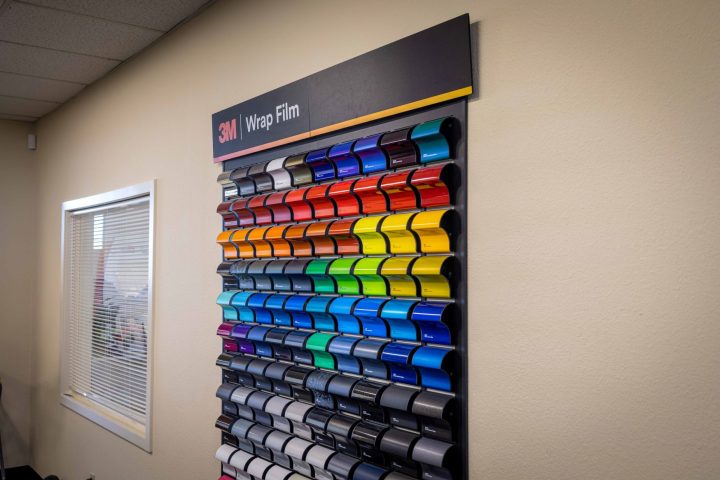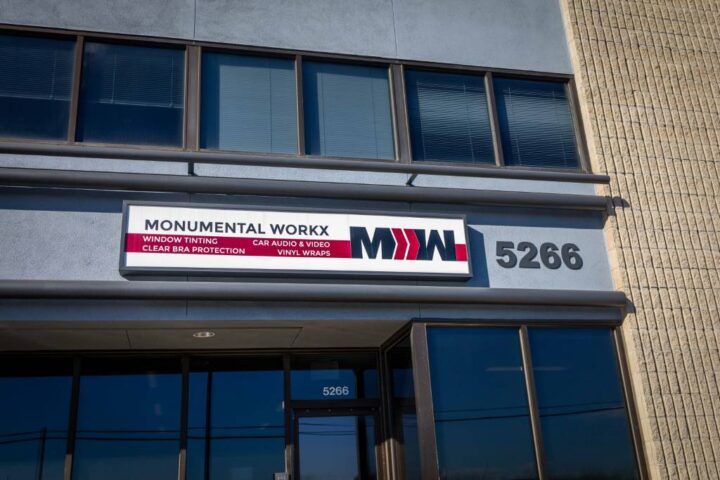
Vehicle wraps offer one of the most effective ways to change your car’s appearance without permanent modifications. Whether you want to protect your factory paint, advertise your business, or simply refresh your ride’s look, choosing the right vinyl wrap makes all the difference in how long it lasts and how good it looks.
The wrap you choose depends on your budget, how long you plan to keep it, and what finish you prefer. Cast vinyl wraps last longer and conform better to curves, while calendered vinyl costs less but works best on flat surfaces. You’ll also need to decide between matte, gloss, satin, chrome, or textured finishes. Professional installation ensures proper application and longevity, which is why companies like Monumental Workx in San Diego specialize in expert wrap installation that maximizes your investment.
Cast Vinyl vs. Calendered Vinyl: Understanding the Difference
The manufacturing process creates two distinct types of vinyl wrap material. Cast vinyl gets made by pouring liquid polymer onto a casting sheet, then allowing it to cure. This process creates a thin, pliable material that conforms easily to complex curves and recessed areas on your vehicle.
Calendered vinyl goes through a different process where solid polymer gets squeezed through rollers to reach the desired thickness. This creates a thicker, less flexible material that costs less but doesn’t conform as well to compound curves. It works well for fleet vehicles, flat surfaces, and shorter-term applications.
Cast vinyl typically lasts 7-10 years with proper care, while calendered vinyl usually lasts 3-5 years. The price difference reflects this durability gap, but for most passenger vehicles with curves and body lines, cast vinyl delivers better results.
Available Finishes and Textures
Modern vinyl technology offers an impressive range of surface finishes:
- Gloss finishes mimic factory paint with a shiny, reflective surface that’s easy to clean
- Matte wraps provide a flat, non-reflective appearance that’s gained popularity in recent years
- Satin finishes split the difference, offering subtle shine without full gloss
- Chrome and metallic options create eye-catching reflective surfaces in various colors
- Carbon fiber textures add depth and dimension with a woven appearance
- Brushed metal looks simulate aluminum or steel without the weight
Your finish choice affects both appearance and maintenance requirements. Gloss finishes hide minor scratches better than matte, but matte finishes often show less dirt between washes.
How Long Vinyl Wraps Last
Wrap longevity depends on several factors. Material quality matters most—premium cast vinyl from manufacturers like 3M and Avery Dennison outlasts budget alternatives by years. Installation quality also plays a major role, as improper technique leads to lifting edges and premature failure.
Environmental conditions affect lifespan too. Vehicles parked outdoors in harsh sun fade faster than garaged cars. Salt exposure in coastal areas or winter roads can degrade adhesive over time. Regular washing and occasional waxing with wrap-safe products extends life considerably.
Most quality wraps maintain their appearance for 5-7 years before showing significant wear. Some owners keep wraps for a decade, while others change them every few years for a fresh look.
Color Options and Design Possibilities
Vinyl wraps come in thousands of colors, including shades not available in factory paint. You can match existing colors, choose from trending hues, or create custom color combinations. Many shops can print custom graphics, patterns, or images directly onto wrap material.
Partial wraps offer another option. Roof wraps, hood wraps, or accent pieces let you add contrast without covering the entire vehicle. This approach costs less while still delivering significant visual impact.
Color-shifting wraps use special pigments that appear different depending on viewing angle and lighting. These premium options create unique effects impossible with traditional paint.
Professional Installation vs. DIY Wrapping
Installing vinyl wrap requires specific skills and tools. Professionals work in temperature-controlled environments, use specialized squeegees and heat guns, and know how to handle complex curves and tight spaces. They can also remove and reinstall parts like mirrors, door handles, and trim pieces for seamless coverage.
DIY wrapping saves money but risks poor results. Bubbles, wrinkles, and improper edge sealing lead to early failure. Most installers spent years learning their craft. For a quality result that lasts, professional installation makes sense.
Monumental Workx brings years of experience to every wrap installation in San Diego, ensuring your vehicle gets the attention and expertise it deserves.
What Vinyl Wraps Cost
Wrap pricing varies based on several factors:
- Vehicle size: Compact cars cost less than trucks or SUVs
- Material type: Premium cast vinyl costs more than calendered options
- Finish choice: Chrome and specialty finishes command higher prices than solid colors
- Design complexity: Simple color changes cost less than custom printed graphics
- Installation difficulty: Vehicles with more curves and details require more labor
Full wrap installation for a sedan typically ranges from $2,500 to $5,000. Luxury materials or intricate designs push costs higher. Partial wraps start around $500-$1,500 depending on coverage area.
This investment protects your original paint and reverses easily when you want a change. Quality wraps often increase resale value by preserving factory finish underneath.
Maintaining Your Vinyl Wrap
Proper care keeps wraps looking fresh for years. Hand washing works best—automatic car washes with brushes can catch edges and cause lifting. Use pH-neutral soap and soft microfiber cloths. Avoid pressure washing edges, seams, and any areas where vinyl meets body panels.
Park in shade when possible to minimize UV exposure. Apply wrap-specific sealants twice yearly to protect the finish and make cleaning easier. Remove bird droppings, tree sap, and bug splatter promptly, as acidic substances can stain vinyl over time.
Small tears or lifting edges need immediate attention. Most wrap shops can repair minor damage before it spreads. Addressing problems early prevents costly re-wrapping later.

